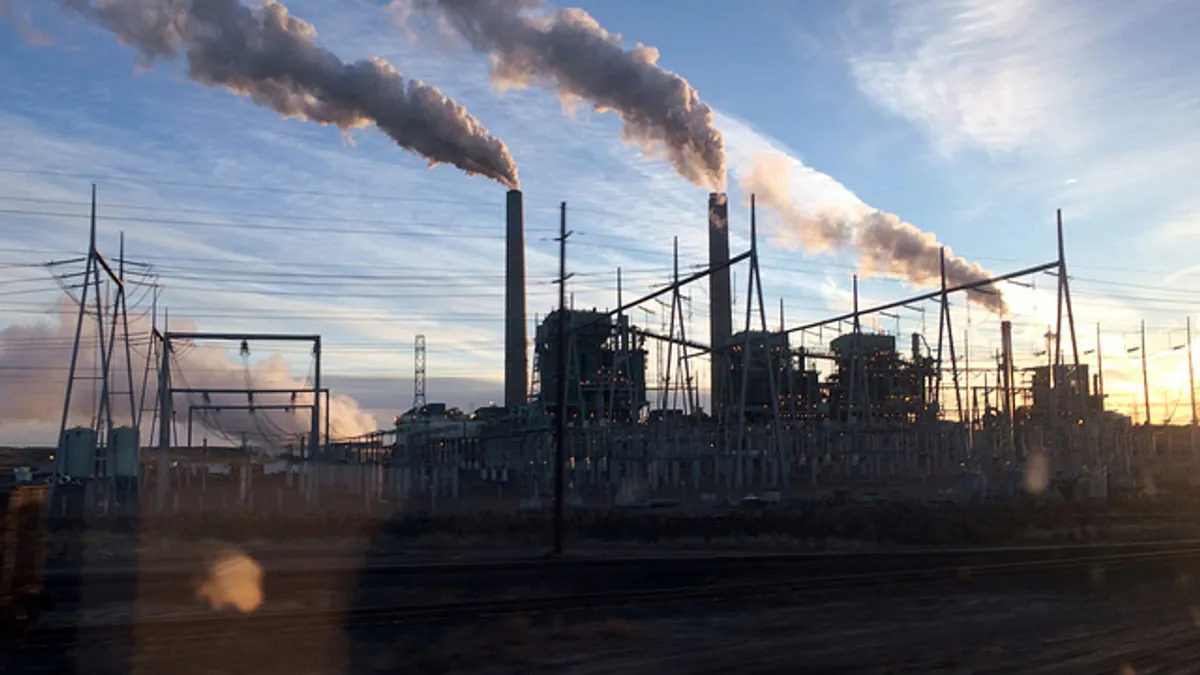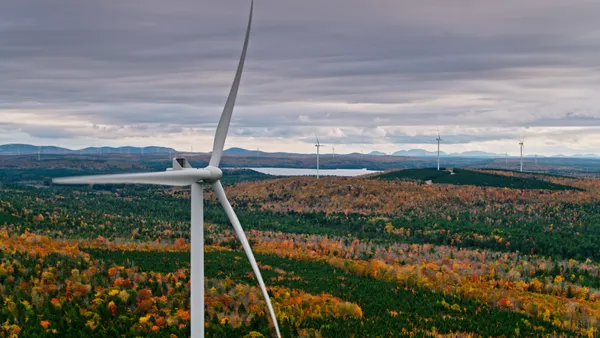Dive Brief:
- Consumers Energy will shutter nine coal plants in Michigan as EPA air pollution regulations make them unprofitable to operate, MLive reports.
- And the Michigan utility won't be the only one. A wave of coal retirements will roll across the Midwest by early 2016, shuttering more than 60 generating plants, a Consumers official told the "Greening of the Great Lakes" weekly radio program.
- In addition to the regulations under the Clean Power Plan and other EPA programs, Consumers says many of the nine coal plants were built in the 1950s and are simply at the end of their productive lives.
Dive Insight:
Consumers Energy Senior Vice President David Mengebier appeared on the Greening of the Great Lakes radio program and discussed Michigan's energy situation in advance of coming Environmental Protection Agency regulations which will close down many older, coal-fired plants.
"It's really an opportunity for the state of Michigan because we are going to change out our older plants and build the next generation of clean burning power plants while investing in renewable energy," Mengebier told host Kirk Heinze. The program airs on News/Talk 760 WJR.
Mengebier, in charge of governmental and public affairs for Consumers, told Heinze it is not cost effective to retrofit some of the older plants. "And this is true not just for utilities in Michigan but around the Midwest," he said.
Last year Consumers Energy announced it had selected AMEC to run the utility's decommissioning program for the planned retirement of seven operating units at the utility’s three oldest coal-fired generating plants. Though there is still uncertainty over just what impact a slate of EPA regulations will have, Consumers last year said the power plants being decommissioned have an average operating life-span of more than 60 years and collectively represented approximately 950 MW of electric capacity.
The Supreme Court has agreed to hear a challenge to the EPA's Mercury and Air Toxics Standard, but as it stands the regulations could apply to 1,400 generators at more than 600 of the nation's largest power plants.
Federal regulators believe the tighter controls could prevent up to 11,000 premature deaths each year by limiting mercury, particulate matter, and other harmful pollutants it says are hazardous to public health.















